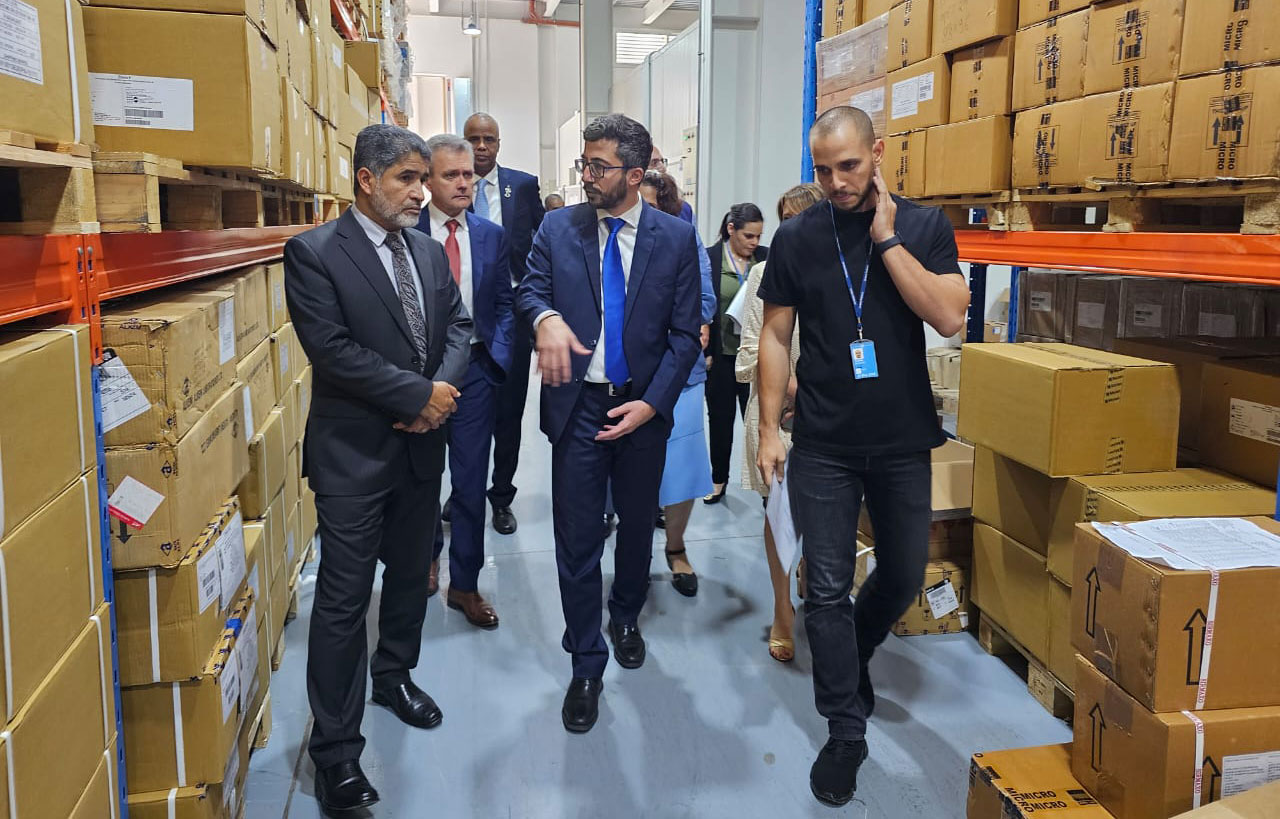
01 November 2023, Beirut, Lebanon – As hostilities escalate on the border between Lebanon and Israel, WHO Regional Director for the Eastern Mediterranean Dr Ahmed Al-Mandhari has concluded a visit to Beirut, where he met with the Prime Minister, the Minister of Health, UN partners, and WHO staff to reinforce health system preparedness for a potential escalation of the conflict. Over the past few weeks, hostilities have expanded beyond the border into southern Lebanon, with 42 people killed, 193 injured and almost 29,000 internally displaced since the start of the cross-border conflict.
“An increased spillover of hostilities into southern Lebanon would concerningly place even more civilians at risk of death or injury and potentially threaten the health security of the entire Region. Ultimately, we call for a ceasefire in Gaza, so that further loss and suffering can be prevented. As part of regional preparedness efforts, we are working to ensure that Lebanon’s health system is better prepared to manage the mass casualty and to provide health services to people displaced without compromising existing health services for people living in the area,” Dr Al-Mandhari said.
The health system in Lebanon has been challenged by the ongoing economic crisis and the impact of the Beirut blast of August 2020, and overwhelmed by the increasing burden of Syrian refugees' needs. Critical shortages of specialized medical doctors and health workers, medicines and medical equipment, and other health supplies have added more layers of complexity to the challenges facing the health system and the health of the population.
Together with support from WHO and health partners, the Ministry of Public Health has scaled up preparedness and readiness of the health system to support mass casualty management and the provision of emergency healthcare services to people affected by a potential escalation of conflict.
WHO has supported the establishment and operationalization of the Public Health Emergency Operation Center (PHEOC) at the Ministry of Public Health to coordinate and support all health preparedness and response activities. On 31 October, WHO prepositioned trauma supplies, enough for 800 people, in eight public hospitals to scale up their capacity to potentially receive greater numbers of injured patients. More trauma and surgical supplies, enough for 3000 people, will be delivered in the coming days to 30 referral hospitals to strengthen their emergency response capacity.
During his visit, Dr. Al-Mandhari, accompanied by Dr. Richard Brennan, Regional Emergency Director, met with Lebanon’s Prime Minister Mr. Najib Mikati, and Minister of Public Health, Dr. Firass Abiad. Mr. Mikati thanked WHO for its continued support in responding to health needs in Lebanon during the multi-crises the country has passed through in recent years, and the rapid support provided in response to the potential escalating health emergency on the border.
Appreciating the collaboration between WHO and the Ministry of Public Health, Dr. Abiad stressed the importance of emergency preparedness and response and stated that WHO support for health system strengthening during emergencies has been critical.
Dr Al-Mandhari also visited the Ministry of Public Health warehouse in Karatina, where additional health supplies received from WHO’s logistics hub in Dubai have been pre-positioned for southern Lebanon. An additional airlift of trauma kits from Dubai is expected to arrive in Lebanon next week, and the Ministry of Public Health has already identified the referral hospitals that will receive these vital supplies.
UN partners voiced their appreciation for the health sector’s preparedness and readiness efforts and expressed concern over the lack of funding to respond to increasing health needs.
As part of a WHO Regional appeal for the Gaza crisis launched last week, WHO requested a total of US$ 50 million for its response in Gaza, and US$ 10.4 million to support the health response for a potential spillover into Lebanon.
Media contact: Hala Habib, Communications Officer, WHO Lebanon Country Office,
Email:


